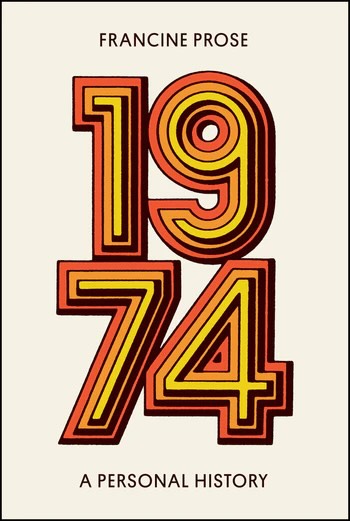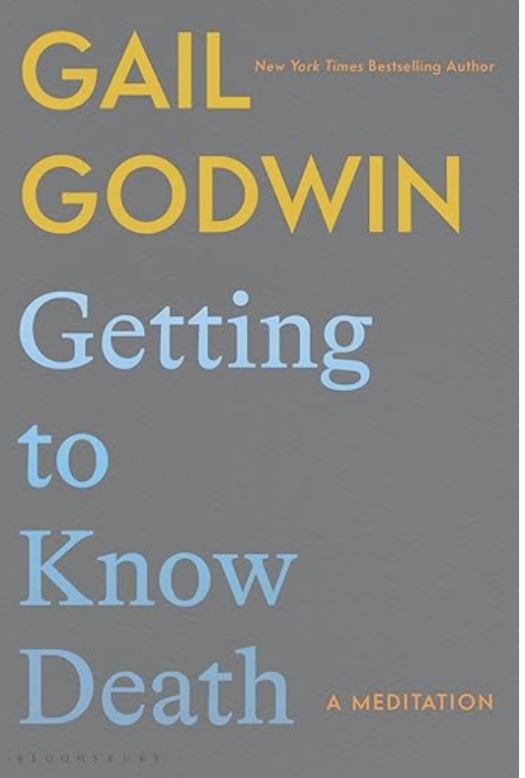Podcast: Play in new window | Download
Subscribe: Apple Podcasts | RSS
In this episode of Writer’s Voice, Francesca Rheannon welcomes back acclaimed novelist, essayist, and now memoirist, Francine Prose. They dive into Prose’s latest work, 1974, a memoir that revisits her time in San Francisco during a pivotal year in American history.
Then, In a deeply introspective conversation, Gail Godwin opens up about the pivotal moment that sparked her memoir, Getting to Know Death. Following a life-altering accident where she broke her neck, Godwin found herself confronting mortality in a visceral way. This memoir, initially sparked by personal trauma, evolved into a broader reflection on life, loss, and the inevitability of death.
Writers Voice— in depth conversation with writers of all genres, on the air since 2004.
Connect with Us: Follow us on social media to stay up-to-date on the latest episodes and news. Find us on Facebook at Writers Voice with Francesca Rheannon, on Instagram @WritersVoicePodcast or find us on X/Twitter@WritersVoice.
Key Words: Gail Godwin, Francine Prose, counterculture, Tony Russo, writer’s voice, podcast, book recommendations, author interview, book podcast, book show, book excerpt, memoir
Francine Prose’s 1974: Interview Highlights

Memoir vs. Anecdote:
Prose reflects on her transition from essays, as in Reading Like a Writer to memoir writing. She notes that while her previous works contained personal anecdotes, 1974 marks her first sustained effort into memoir, focusing on the transformative year when she lived in San Francisco.
The Changing Times:
Prose discusses the societal shifts of the early 1970s, contrasting the idealism of the 1960s with the disillusionment of the subsequent decade. She highlights how events like Watergate and the Patty Hearst case reshaped public perception, leading to a decline in the optimism of the previous decade.
Meeting Tony Russo:
Prose introduces Tony Russo, a pivotal figure in her memoir, and his involvement in the release of the Pentagon Papers alongside Daniel Ellsberg. She details Russo’s background as an aeronautical engineer turned anti-war activist, emphasizing his radicalization following experiences in Vietnam.
Relationship Dynamics:
Prose reflects on her personal interactions with Russo, portraying their relationship as one primarily defined by his intense idealism and her role as a listener. She describes Russo’s fervent dedication to activism and writing amidst personal struggles and mental instability.
The Zeitgeist of the 1970s:
The conversation delves into the countercultural movements of the era, exploring themes of sexual liberation, feminism, and the broader societal aspirations for change. Prose reflects on the contradictions and freedoms of the time, drawing parallels to contemporary challenges faced by young women.
Legacy of the Past:
Prose shares insights into the lasting impact of historical events like the Vietnam War, illustrating how the echoes of that era resonate in today’s political and social landscape. She connects these reflections to her own experiences and observations over the decades.
Closing Reflections:
The interview concludes with Prose reading a passage from her memoir, highlighting her deep emotional connection to San Francisco and the enduring impact of Alfred Hitchcock’s film Vertigo in shaping her understanding of memory and time.
Read or Listen To an Excerpt from 1974
Listen to more Writer’s Voice interviews with Francine Prose
MR. MONKEY & READING LIKE A WRITER , LOVERS AT THE CHAMELEON CLUB, MY NEW AMERICAN LIFE, ANNE FRANK: THE BOOK, THE LIFE, THE AFTERLIFE
Gail Godwin’s Meditation on Mortality: Getting To Know Death

In a deeply introspective conversation, Gail Godwin opens up about the pivotal moment that sparked her memoir, Getting to Know Death. Following a life-altering accident where she broke her neck, Godwin found herself confronting mortality in a visceral way. This memoir, initially sparked by personal trauma, evolved into a broader reflection on life, loss, and the inevitability of death.
Interview Highlights
Personal Encounter with Mortality
Godwin recounts the incident that led to her contemplation of death. In August 2022, she tripped and broke her neck while tending to a dogwood tree. Unable to move, she was confronted with her vulnerability and mortality in a way she had never experienced before. This event became the catalyst for her memoir, prompting her to explore death through introspective writing.
Writing Process and Narrative Style
Reflecting on her writing process, Godwin explains how she begins the book by adopting a particular narrative style to convey her experience. Using a second-person perspective, she immerses herself in the visceral details of the accident and its aftermath. This stylistic choice allowes her to intimately connect with her readers, inviting them into the emotional and physical journey of grappling with mortality.
Exploring Themes of Death and Loss
Throughout Getting to Know Death, Godwin weaves together personal anecdotes and reflections on death. She draws inspiration from literary figures she has studied and taught about. The memoir also pays homage to significant losses in Godwin’s life, including the sudden death of her brother and the passing of her close friend, Pat.
The Influence of Literary Canon
Godwin discusses the literary influences that shaped her exploration of death. Drawing from works by Philip Larkin, Henry James, and Tolstoy, she incorporates their perspectives on mortality into her narrative. These literary references enrich her memoir, offering readers a broader context to contemplate the universal theme of death.
Philosophical Reflections on Mortality
Beyond personal anecdotes, Godwin engages in philosophical reflections on mortality. She discusses the difference between sudden deaths and those that come after a long life, reflecting on her father’s and brother’s tragic passings.

